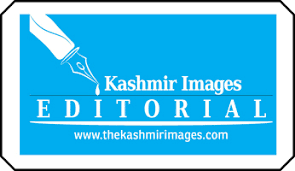By: Altaf Hussain Haji
As we know that Statistics Day is celebrated every year on 29th June, since 2007.This day marks the birth anniversary of late Professor Prasanta Chandra Mahalanobis, in recognition of his valuable contribution on economic, planning and statistics. The major objectives of celebrating Statistics Day is to create public awareness, especially among the younger generation, about the role and importance of statistics in socio-economic planning, policy formulation and decision making for the development of the country.
Every year on Statistics Day, one particular theme of current national importance is chosen for intensive and focussed attention. The theme of this year Statistics Day, 2024 is “Use of Data for decision –making”. As we know that the data driven decision making is important and most essential skills for better understanding of statistical information emanating fromofficial statistics and for facilitating evidence based decision making. Official statistics have had an enviable track record over the last few decades in using decision making. In this age of information, the provision of reliable and high quality data and information provided by National Statistical Offices (NSOs) and other sources of official data are of critical importance and an increasingly requirement to economies and societies.
Over the past 50 years, the data producers of various countries have relied heavily on data for various decision making. It is impossible to take next stage of planning and policy formulation without any data or statistics. Earlier the data relied primarily on surveys, census, and administrative registers to produce official statistics but nowadays artificial intelligence and other useful data sources based on statistical literacy play an important role in decision making. The institutional requirement to perform and produce statistical activities for planning policy and decision making to collect data through nationwide census and surveys as and when required is continuous process.
National Statistical Office (NSO) is one of the responsible data collecting government organization and iscapable of producing statistics on a national scale in prescribed methodologies and procedures. In our country, under Ministry of Statistics and Programme Implementation, Government of India,National Statistical Office (NSO) is nodal office which is also known as National Sample Survey Office (NSSO).It is one of the authentic organisation belonging to Government of India but also has the name and fame among various international statistical organisations to produce official statistics. As the integration of administrative data gained popularity, in order to ensure that data users have been using high-quality statistical information ,the producers of official statistics are not the only the sole supplier of information of reliable data. It is to mention here that there is a growing confusion between official statistics and lessreliable data everywhere at the time of decision making. This may give more weight to opinions and impressions of data or statistics. Statistics needs to stand out as a trustworthy source of information. The importance of relying to statistical surveys is increasing day by day. The data is not easily available to organizations and even to the public, through open data providers and the information is enshrined in enforced laws under which NSO operateswithin the country.
The needs of the Official Statistics users, are becoming more complex and individualized, and more detailed information is needed for instance on small population groups and geographic localities with quality data. Quality of statistics is one of the key features of data that influences the value that users experience. Quality could be seen as “fit for use” which includes many dimensions, such as relevance, accuracy, timeliness, accessibility, comparability and coherence. Quality is by no means a monopoly of official statistics.
The data availability combined with the availability of open-source software and free cloud computing services means that everyone with an interest can analyse efficiently. With advances in information technology, the sharing of digital data has become easier for NSOs. Gone are the days of having to capture paper forms to obtain data in a digital format that could be shared among organizations. With the majority of administrative data now being collected electronically and with secure transfer protocols, the sharing of data among NSOs and data custodians is becoming easier. Also, with the advancements in record linkage methods, the ingestion of administrative data into the statistical system is easier than it has ever been.
In year 2014, the United Nations General Assembly adopted in order to produce the data or OfficialsStatistics keeping in mind the ten fundamental principles which is required at this stage of use of technology of Artificial Intelligence to get better data and enhance the data quality. In order to produce quality statistics and can do statistics better with the following Fundamental Principles on Official Statistics are as follows
(1) Relevance, impartiality and equal access: Data or Official statistics provide an indispensable element in the information system of a democratic society, serving the government, the economy and the public with data about the economic, demographic, social and environmental situation. To this end, official statistics that meet the test of practical utility are to be compiled and made available on an impartial basis by official statistical agencies to honour citizens’ entitlement to public information.
(2) Professional standards and ethics: To retain trust in official statistics, the statistical agencies need to decide according to strictly professional considerations, including scientific principles and professional ethics, on the methods and procedures for the collection, processing, storage and presentation of statistical data.
(3) Accountability and transparency: To facilitate a correct interpretation of the data, the statistical agencies are to present information according to scientific standards on the sources, methods and procedures of the statistics.
(4) Prevention of misuse: The statistical agencies are entitled to comment on erroneous interpretation and misuse of statistics.
(5) Sources of official statistics: Data for statistical purposes may be drawn from all types of sources, be they statistical surveys or administrative records. Statistical agencies have to choose the source with regard to quality, timeliness, costs and the burden on respondents.
(6) Confidentiality: Individual data collected by statistical agencies for statistical compilation, whether they refer to natural or legal persons, are to be strictly confidential and used exclusively for statistical purposes.
(7) Legislation: The laws, regulations and measures under which the statistical systems operate are to be made public.
(8) National coordination: The coordination among statistical agencies within countries is essential to achieve consistency and efficiency in the statistical system.
(9) Use of International standards: The use by statistical agencies in each country of international concepts, classifications and methods promotes the consistency and efficiency of statistical systems at all official levels.
(10) International cooperation: Bilateral and multilateral cooperation in statistics contributes to the improvement of systems of official statistics in all countries.
The demand for data or official statistics is rapidly growingto tell the story and isa requirementof economyindicator and for status of development of the nations. An increasingly globalized and inter connected world creates new needs for accurate and authentic information about economies and societies. As justone example, reporting on progress towards the 2030 agenda on Sustainable Development Goals and will look at hundreds of indicators to be produced in many new partnerships. These indicators should be measured respecting fullywith the aim of Fundamental Principles of Official Statistics and Human rights to UN member countries for their wellbeing and developments.
If we want the use of real data or statistics, there is an urgent need to focus on best producers of statistics, communicators of statistics and statistical audiences. The producers of statistics are statisticians, scientists, institutional and non institutional surveys organisations, surveys industries and companies, etc. which can do statistics better for planning and decision making. The scientific journals, charities, government departments, press officers, journalists and editors can also communicate statistics betterthan all others. Further audiences such as the public, policy makers and professionals can do better by checking the statistics available. It is duty of every citizen to indentifying and helping to callout poor statistical practice. Thus the need of awareness of statistical literacy has an important role to indentify the poor statistical practice of producers and communicators. In this age of information, the awareness of statistical literacy in mass level, not only particular of the group of individuals but also whole population or public of the country in order to know value and use of data or statistics and than by means of statistical literacy we can develop the ethics of the data or official statistics.
The National Statistical Office (NSO) under the Ministry of Statistics and Programme Implementation, collected data through Census and Surveys and is used for decision making on the bases of authentic value of official statistics. The important uses of an official statistics for quick decision making is based on data include calculations of minimum wage, dearness allowance for government employees, fuel surcharges, policies and strategies to reduce poverty and unemployment, population and labour force participation, property prices and the rental market analysis, regionaldevelopment and city planning, trade union negotiations, transport infrastructure,educational infrastructure, subsidies, quotas, government representation and electoral boundaries, healthservices, immigration, trade, quality of life comparisons, interest rates, budget and finance, local, national and international strategic planning and development, crisis management andinvestment, etc.There were also numerous uses for improving trends both in media citations as well as feedback about the trust and usefulness of data and official statistics.
C/O Deputy Director General (DDG), National Statistical Office (Field Operations Division), Regional office, Raipur Chhattisgarh
Courtesy PIB Srinagar

Kashmir Images is an English language daily newspaper published from Srinagar (J&K), India. The newspaper is one of the largest circulated English dailies of Kashmir and its hard copies reach every nook and corner of Kashmir Valley besides Jammu and Ladakh region.












